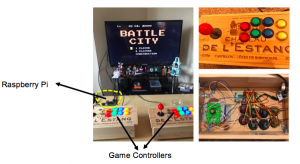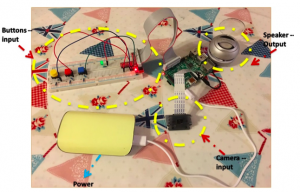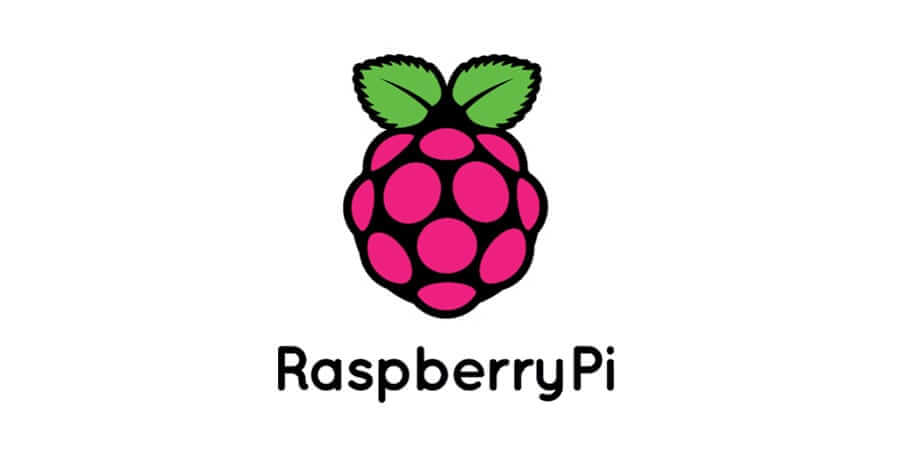A number of technology innovations have been recently enabled through Raspberry Pi. What is Raspberry Pi?
In a nutshell, it is a low cost, credit-card sized computer that you can plug into a computer monitor or TV, and use standard keyboard and mouse to work with it.
These Raspberry Pi devices are enabling people of all ages to explore computing, and learn programming in languages like Scratch and Python. They can do many things that you can do with a traditional computer, such as browsing the internet, play high-definition video, make spreadsheets, word-processing, and play games. Originally, they were designed to be used in education for creative teaching and learning.
What is a Raspberry Pi in the industry
That said, their low cost, around £30, means they are often used as a budget PCs in industry and also to drive technology for internal business processes. Eben Upton, a chip architect at Broadcom and one of the founders of the Raspberry Pi Foundation, says the device is particularly useful for other business processes such as programming displays for digital signage. In an interview he said:
“It is actually very suitable for industrial uses, especially for industrial control processes … The Pi is as powerful as or more powerful than what is currently being used” .

#PUPRU Raspberry Pi Retro Games Emulator
There are many innovative things people can do with Raspberry Pi, such as Makeshift face recognition, Pi-powered lego and Retro gaming ZX spectrum emulators.
The team couldn’t resist revisiting their childhood. One of the first things we did was make some game controllers to be connected to a Raspberry Pi to play retro gaming favourites.
That said, there has been little research into how Raspberry Pi can be embedded into business strategy. This is where #PUPRU comes in and looks to see how these technologies can be used outside of their educational context as drivers of enabling business strategy.
We experiment with Raspberry Pi
We have three Raspberry 1s. They are pretty nifty little machines and have all the mod-cons: 40-pin GPIO headers, 4 USB 2.0 ports, 1SD card socket, audio input and a camera set socket. You can do quite a lot with all these things, certainly far more than what was originally envisioned. Some of the key benefits of the Raspberry Pi for business identified by the team so far include:
- They are cost-efficient and portable – The Raspberry Pi is a credit card sized PC and as mentioned earlier they are available from around £30.
- They are very energy-efficient – They only need a 5v micro USB to power them.
- They are very functional with creative input and output channels – There are lots of ways to connect devices, cameras, speakers, increased storage and wifi-adapters, making the Raspberry Pi incredibly adaptable to different business scenarios.
Based on these advantages, Raspberry Pi could potentially be used in the public sector to achieve strategic aims and solve problems faced at strategic levels. A good example is found in the work we have been doing with the NHS. To take this innovation into action we created a prototype ‘questionnaire device’ and tested it at an event gauging participant engagement and gathering feedback on the quality of service using a button set we connected to the input and output channels.

Raspberry Pi ‘Questionnaire Device’
In the picture , there are two inputs used to capture data from participants. These are:
- The camera and button panel, and
- An output channel from Raspberry Pi which is connected to a speaker.
When someone approaches the device their motion is detected by the camera and it boots the questionnaire program automatically. A voice delivers questions that are pre-set in the program one-by-one, waiting for participants to press coloured button on the panel to give their choices. When the questionnaire is finished, camera re-starts ready to detect the next participant, and can repeat the process ad infinitum. The collected data is be stored on SD card of Raspberry Pi for analysis. Because of the simplicity of the Raspberry Pi, the questionnaire can be designed to align with key issues facing an organisation.
In the demonstration version produced for the NHS Salford Citizen’s Panel event held at the end of March 2016 in Salford Lighthouse, five questions were suggested by NHS Salford Clinical Commissioning Group were programmed:
- Are you enjoying the event today? Blue button for Yes, Red button for No, Yellow button for its ok
- Would you come to a future event? Blue button for Yes, Red button for No, Yellow button for Maybe
- What have you most liked about today? Blue button for Salford Standards, Red button for GM Devolution, Yellow button for Awareness of Cancer Needs
- What did you least like about today? Blue button for Salford Standards, Red button for GM Devolution, Yellow button for Awareness of Cancer Needs
- What would you like to see at future events? Blue button for Information about Health Services and Changes, Red button for Patient/Community Stories, Yellow button for Market Stalls
The need to gather participant feedback data is becoming common in many industries; but, could the Raspberry Pi be used to drive devices that offer more flexibility and scalability?
This project is fascinating, and we welcome your contribution, and our group from the Centre for Digital Business focusing on researching the use of emerging and disruptive technologies in business. If you want to know what is going on please get in touch with our project coordinator, and are on Twitter so you can follow us, and find out more about the thing we are doing.
__________________________________________
About the Author
This article was written by Yun Chen of Salford Business School Blog. Salford Business School works with industry, to develop the business leaders of the future. Learn more about business school insights.





























